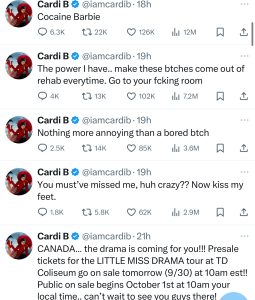
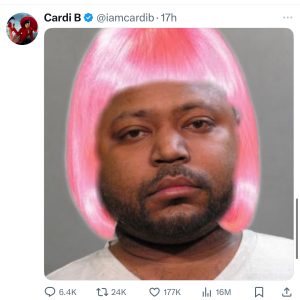
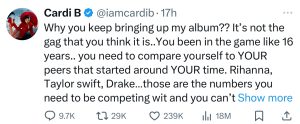
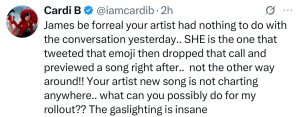
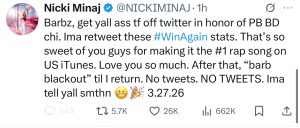
Social Media, Tensions Between Female Rappers: A Look at Nicki Minaj, Cardi B, and the Power of Online Influence
In the ever-evolving landscape of hip-hop and pop culture, social platforms like Twitter and Instagram have become not only a weapon for promotion but also battlegrounds for public disaster, fan wars, and artist rivalries raise concern. A recent fight of this dynamic reveal between fans and associates of Nicki Minaj and Aka Cardi B two of the most prominent female rappers of the modern era in recently times. The situation highlights not only the deeper tension between the two popular female artists but also the way fandoms and public personas intersect with music promotion and online discourse etc.
On one side of the conversation, Nicki Minaj—through fan engagement and indirect messaging—celebrated her latest achievement, with her track “Win Again” reaching #1 on the US iTunes rap chart that a very good achievement. Her Text to the Barbz (her heated fanbase) urged them to step back from Twitter as a show of unity and respect for her friend’s birthday (“PB BD chi”) lol. This moment of celebration was marked by her connection to her fans, whom she often directly communicates with. Her announcement of a temporary “barb blackout” served both as a promotional strategy and a symbolic retreat amid growing online dispute.
In summary, Cardi B responded to an unrelated but parallel rumors, directly calling out an individual named James and defending herself against what she see as an unfair framing of events. Cardi B accused others of gaslighting and misrepresenting the timeline of actions—arguing that another artist (implied to be Nicki Minaj) initiated the tension by tweeting an emoji and teasing music in a provocative sequence. Cardi B also pointed out that the other artist’s new track isn’t charting successfully, lol casting doubt on their hype to her own rollout and promotion plan.
Her post went further, challenging compariing between them. Cardi B asserted that Nicki—having been in the industry for over 16 years should be compared to legacy artists like Rihanna, Taylor Swift, and Drake, rather than to her. This argument reflects a broader issue in the industry the repeated framing of successful women as rivals, even when their timelines, styles, and artistic goals differ.
At the heart of the conflict is a familiar cycle: indirect messaging, chart comparisons, and standculture fueling animosity between artists and their fanbases. The pressure on women in rap to constantly prove their dominance or relevance through numbers, aesthetics, and social media engagement often overshadows their musical output. In this instance, both artists are participating in a spectacle that distracts from their individual successes and creative contributions.
Moreover, the fans—particularly the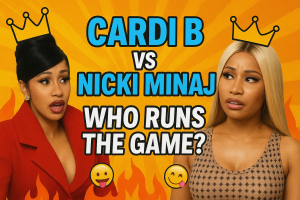 Barbz and the Bardi Gang—amplify these tensions by engaging in non-stop commentary, trend manipulation, and online attacks. The line between support and obsession often blurs, creating an environment where artists feel the need to address everything publicly, even if it derails the focus from the music itself.
Barbz and the Bardi Gang—amplify these tensions by engaging in non-stop commentary, trend manipulation, and online attacks. The line between support and obsession often blurs, creating an environment where artists feel the need to address everything publicly, even if it derails the focus from the music itself.
In conclusion, while this latest drama may seem like another typical moment in rap culture’s social media era, it reveals deeper truths about gender, competition, and the role of digital platforms in shaping artist narratives. Both Cardi B and Nicki Minaj are trailblazers in their own right, yet the constant demand for conflict—fueled by fans, media, and even strategic PR—undermines the space for mutual respect and coexistence in the genre. If there’s any lesson to be learned, it’s that the music should be allowed to speak louder than the noise surrounding it.
